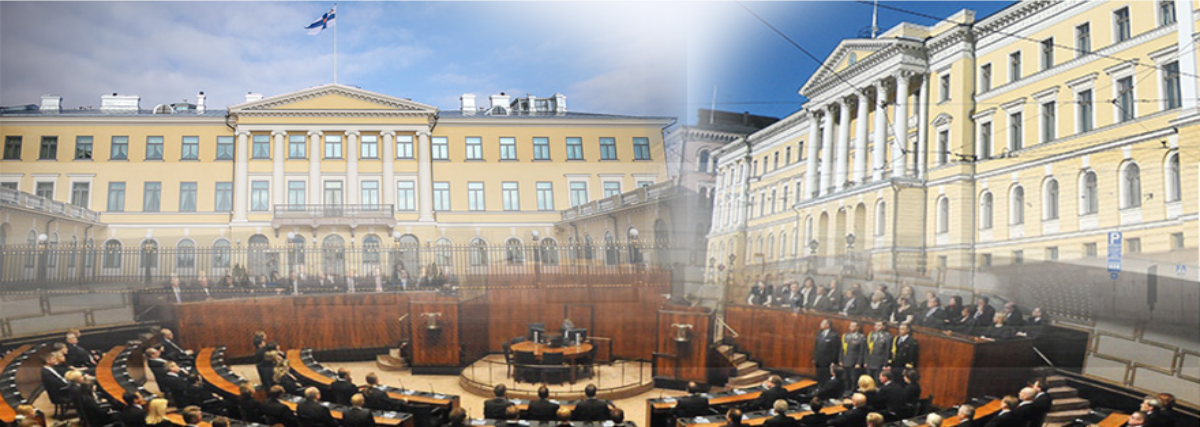Foreign policy leadership
- The President of the Republic leads Finland’s foreign policy in cooperation with the Government.
- The President decides on war and peace with the consent of Parliament.
- Parliament approves international agreements and obligations.
- The Government is responsible for preparing decisions to be made in the EU and in NATO.
- Parliament participates in the preparation of decisions to be made in the EU.
Read more
According to Finland’s Constitution, the President of Finland leads foreign policy in cooperation with the Government. The President decides on war and peace with the consent of Parliament. Parliament approves international agreements. The Government prepares decisions to be made in the EU regarding Finland, and decides on related Finnish measures, although in some cases Parliament’s approval is also required.
The task of those responsible for foreign and security policy is to ensure Finland’s ability to act in all situations. The main actors in foreign and security policy are:
- The President of Finland leads foreign and security policy in cooperation with the Government and represents Finland at NATO summits.
- The Prime Minister has primary responsibility for EU affairs and represents Finland at EU summits.
- The Minister for Foreign Affairs, the Minister of Defence and the Minister of the Interior are actors in foreign and security policy, because external and internal security issues are interlinked.
- The Minister for Foreign Affairs participates in meetings of the EU Council of Ministers held in the foreign minister format and in NATO foreign minister meetings.
- The Minister of Defence participates in meetings of the EU Council of Ministers held in the defence minister format and in NATO defence minister meetings.
- The Ministerial Committee on Foreign and Security policy (known as UTVA), and the joint meeting of the President of Finland and UTVA (known as TP-UTVA).
- The Ministries for Foreign Affairs and Defence prepare and implement Finland’s foreign, security and defence policy.
- Parliament is responsible for legislation related to international relations and for supervising the implementation of foreign and security policy. Within the Parliament, the Committee on Foreign Affairs prepares international affairs, while the Grand Committee on EU affairs and the Defence Committee jointly prepare defence policy issues.
- During EU membership, the responsibility of the administrative branches for international cooperation in their respective fields has been expanded.
NATO is an intergovernmental organisation. Therefore, unlike the EU in certain sectors, it does not have supranational decision-making powers. NATO’s highest decision-making body is the NATO Council, chaired by NATO’s Secretary General. Each Member State has a permanent representative at ambassadorial level on the NATO Council. The Council also meets regularly at the level of foreign and defence ministers, and at summit meetings at the level of heads of state. Finland’s Permanent Mission to NATO is an embassy under the Ministry for Foreign Affairs.
Sources and links
The Ministry of Foreign Affairs:
https://um.fi/frontpage
Finland’s membership in NATO:
https://www.defmin.fi/en/areas_of_expertise/finland_s_membership_in_nato
Permanent Representation of Finland to NATO:
https://finlandabroad.fi/web/nato/mission-of-finland-to-nato

